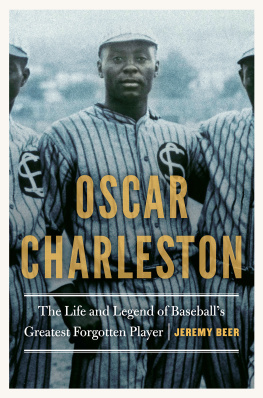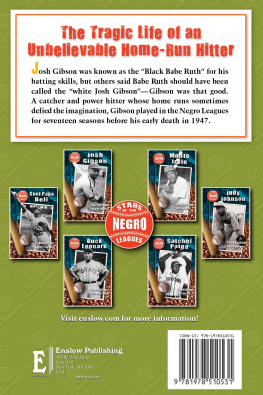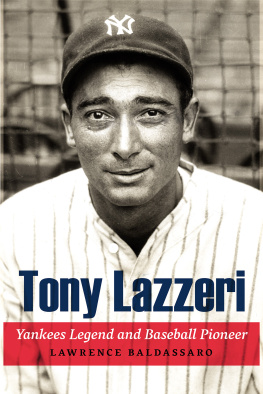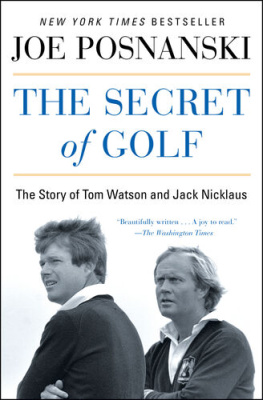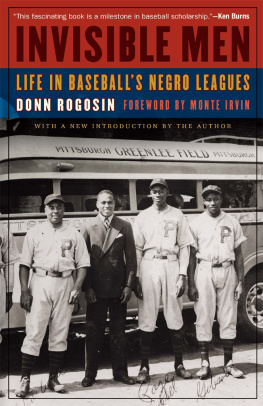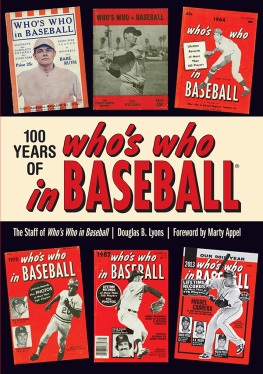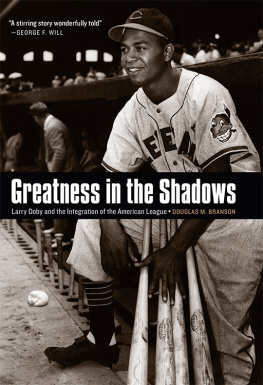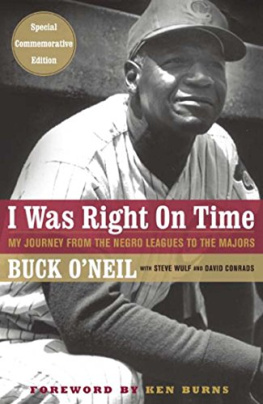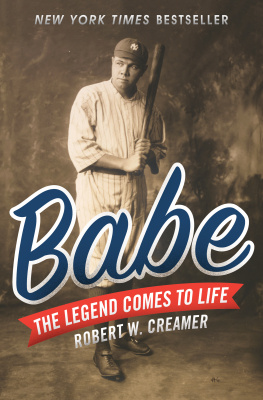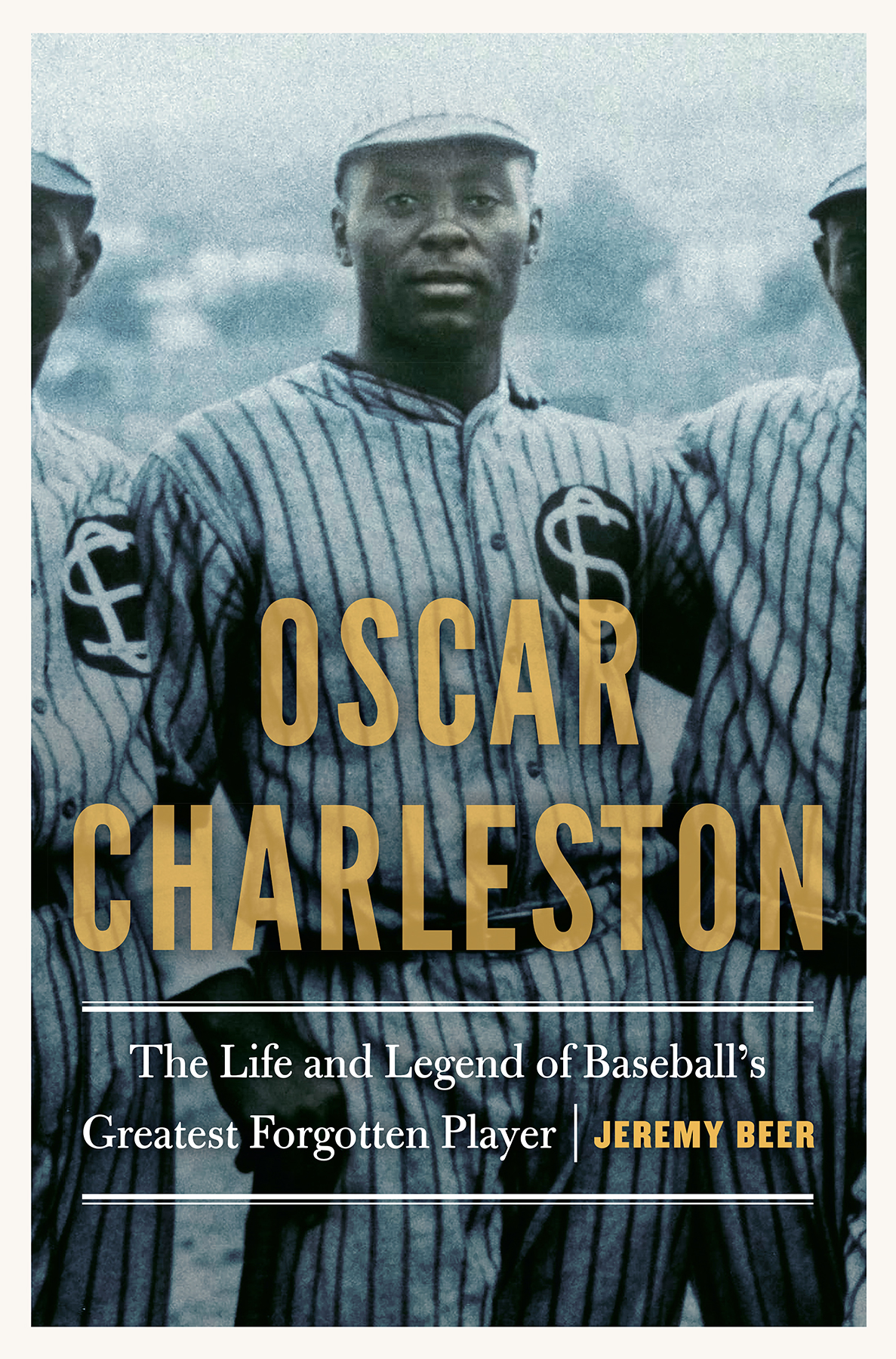
Jeremy Beer provides as much detail as can be gleaned and organized into a comprehensive big picture of the life and legend of baseballs greatest forgotten player.... Every page is a testimony to the heavy, heavy lifting undertaken by the author at archives and libraries.
Nicholas Frankovich, National Review
There is a special place in heavenor in Cooperstown, which is much the same thingfor the University of Nebraska Press, which continues to enrich our understanding of baseball history. It continues this noble work with Jeremy Beers biography of Oscar Charleston. It does justice to the player whom Bill James rates as the greatest of all Negro Leagues playersand the fourth-greatest player of all time, behind only Babe Ruth, Honus Wagner, and Willie Mays.
George F. Will, columnist and author of Men at Work: The Craft of Baseball
Oscar Charleston fills a void in baseball history, providing context and nuance to a great player who was enigmatic in lifeand in death.
Bob DAngelo, Sports Bookie blog
Weaving a story that is as entertaining as it is edifying, Jeremy Beer does the culture a great service by delivering a biography of the forgotten superstar Oscar Charlestona man who lived on his own terms and played baseball like few others.
Charles Leerhsen, author of Ty Cobb: A Terrible Beauty
What if Oscar Charleston had still been in his prime when it came time for the color barrier to be broken in Major League Baseball? On sheer talent, he would have been an obvious choice to carry out the role subsequently championed by Jackie Robinson. In this crisp chronicle of Charlestons life, Jeremy Beer revitalizes the legend of an indomitably competitive man who deserves to be rated among baseballs true immortals.
Branch Rickey III, president of the Pacific Coast League
Forgotten by many, remembered mostly as a foul-tempered brawler by others, Oscar Charleston was in fact perhaps the greatest Negro League baseball player of all time: a commanding force at the plate, at first base, in the outfield, on the base paths and as a pioneering scout and manager. In this thoroughly researched and vividly written biography, Jeremy Beer finally does justice to Oscar Charleston the man and to his place in the history of Americas pastime.
Mark Whitaker, author of Smoketown: The Untold Story of the Other Great Black Renaissance
If you believe what many veterans of the Negro Leagues saidthat Oscar Charleston was the greatest all-time all-around playerthen you will find Jeremy Beers biography to be the unapologetic gospel truth. Beers examination of the grand Oscars youthful days, his military career, his adult life, and his baseball legacy is the fruit of serious grassroots research. He proves that Charleston was the most divine legend there ever was!
Larry Lester, chairman of the SABR Negro Leagues Committee and author of Baseballs First Colored World Series
Denied his due in life, the greatest Negro Leaguer of all timeindeed, one of the greatest ballplayers ever, black or whitewas overdue this spotlight. Good on Jeremy Beer for a book baseball buffs will love, about a man most of us werent lucky enough to see: Oscar Charleston.
Gregg Doyel, sports columnist for the Indianapolis Star
[Jeremy Beer] has managed to construct a portrait of Charleston that clearly establishes him as a great baseball figure and a pioneer whose career paved the way for many who followed him.... An invaluable contribution to baseball history.
Wes Lukowsky, Booklist
Beers evenhanded narrative makes a convincing case for Charleston as the greatest baseball player who never played in the majors. This is a solid hit for baseball historians and fans alike.
Publishers Weekly
Oscar Charleston
The Life and Legend of Baseballs Greatest Forgotten Player
Jeremy Beer
University of Nebraska Press | Lincoln
2019 by the Board of Regents of the University of Nebraska
Portions of chapter 2 previously appeared, in a somewhat different form, in Hothead: How the Oscar Charleston Myth Began, Baseball Research Journal 46, no. 1 (Spring 2017).
Cover designed by University of Nebraska Press; cover image courtesy of the Negro Leagues Baseball Museum.
Author photo courtesy of the author.
All rights reserved
Library of Congress Cataloging-in-Publication Data
Names: Beer, Jeremy.
Title: Oscar Charleston: the life and legend of baseballs greatest forgotten player / Jeremy Beer.
Description: Lincoln: University of Nebraska Press, [2019] | Includes bibliographical references and index.
Identifiers: LCCN 2019006779
ISBN 9781496217110 (cloth: alk. paper)
ISBN 9781496224965 (paperback)
ISBN 9781496217820 (epub)
ISBN 9781496217837 (mobi)
ISBN 9781496217844 (pdf)
Subjects: LCSH : Charleston, Oscar, 18961954. | Baseball playersUnited StatesBiography. | African American baseball playersBiography. | Negro leaguesHistory.
Classification: LCC GV 865. C 433 B 44 2019 | DDC 796.357092 [B]dc23 LC record available at https://lccn.loc.gov/2019006779
The publisher does not have any control over and does not assume any responsibility for author or third-party websites or their content.
For my wife, with immeasurable gratitude.
In his terms, and in the terms of his culture, the Negro league player was a great success. The Negro leaguer had more money, more attention, more lasting fame, and a richer life than almost all the rest of his contemporaries. The result was that Negro leaguers, in general, were not bitter men. Even in the face of racism and the certain knowledge that, had they been white, they would have been major leaguers, these players achieved more than enough to be satisfied.
Donn Rogosin
The greatest player I have ever seen in eight-and-a-third decades, and one of the greatest men.
Buck ONeil
If there is any excellence, if there is anything worthy of praise, think about these things.
St. Paul
Contents
Sometime in the spring of 1992 Larry Lester was watching a documentary with his friend and fellow Negro Leagues historian Dick Clark, at the home of another Negro Leagues historian named Jerry Malloy, when a woman named Anna Charleston Bradley appeared on screen. She was identified as Oscar Charlestons niece. That got Lesters attention.
Lester, Clark, and Malloy were pioneers in the small but growing community of Negro Leagues researchers. They made it their business to collect as much information and material about former Negro Leagues players as they could, and Oscar Charleston was no marginal figure. He was a Hall of Famerthe first shrink-wrapped player, as Lester liked to say, who excelled in every facet of the game. But having died in 1954 with no descendants, Oscar was, in his afterlife, elusive. Virtually everything known about him was buried in old newspaper pieces or came from the fragmented, piecemeal accounts of those who had played with him.
So Lester, working on behalf of the Negro Leagues Museum and Hall of Fame in his hometown of Kansas City, wasted no time getting in touch with Anna. He flew to Indianapolis to meet her, won her trust, and acquired treasures never seen by any historian, writer, or researcher: Oscar Charlestons personal scrapbook and photo album, which together contained hundreds of photos, American and Cuban newspaper clippings, annotations, personal letters, and Cuban cartoons. (Lester also acquired Oscars set of 192324 Cuban League baseball cards.) The materials dated from 1914, when Charleston was serving in the army as a seventeen-year-old, until his death in 1954. Anna Bradley had obtained these personal effects from her aunt Katherine, Oscars sister, who had buried him in Indianapolis and represented him when he was enshrined in Cooperstown in 1976. Katherine had herself received the items from Oscars estranged widow, Janie.
Next page
